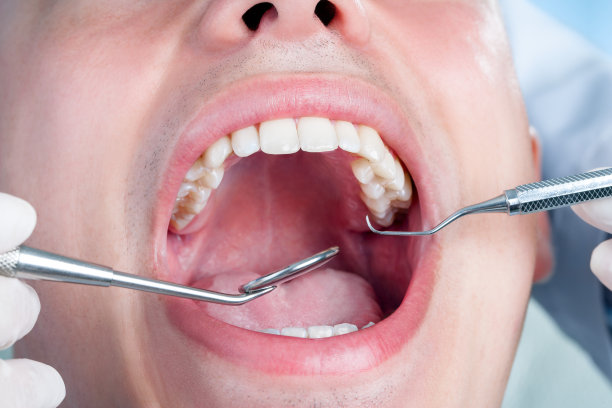Summary: Root canal treatment is a critical dental procedure that aims to save a damaged tooth by removing infected tissues. Prior to undergoing this treatment, careful consideration of essential precautions can significantly enhance the outcomes and support optimal oral health and recovery. This article delves into four key aspects: understanding the procedure and its necessity, selecting the right dental professional, preparing for the treatment day, and post-treatment care. By adhering to these considerations, patients can pave the way for improved recovery and long-lasting oral health.
1. Understanding the Procedure and Its Necessity

A fundamental aspect of root canal treatment is comprehending what the procedure entails and why it is needed. Root canals are performed when the pulp of a tooth becomes infected or severely inflamed, often due to deep decay or trauma. This infection can lead to abscesses and even tooth loss if not addressed promptly.
Understanding the potential symptoms is equally important. Common symptoms that signal the need for a root canal include severe toothache, prolonged sensitivity to heat or cold, darkening of the tooth, and swelling in the gums. Recognizing these warning signs can prompt timely dental visits, preventing further complications.
Additionally, being informed about the procedure itself, which involves removing the infected pulp, cleaning the canal, and sealing it, can help ease potential anxiety. Knowledge empowers patients to make informed decisions about their dental care and treatment plans.
2. Selecting the Right Dental Professional
The choice of dental professional plays a crucial role in the success of root canal treatment. It is essential to find a dentist or an endodontist who is well-experienced and specializes in performing root canals. Researching credentials, seeking referrals, and reviewing patient testimonials are proactive steps in finding the right practitioner.
Additionally, consider the quality of the dental facility. Look for clinics that are equipped with modern technology, as advanced tools can enhance the accuracy of the treatment and minimize discomfort. Facilities that prioritize patient comfort through gentle approaches and sedation options can also significantly affect the overall experience.
Lastly, the availability of the professional for follow-up consultations should not be overlooked. Post-treatment care is a critical part of recovery, so having a dentist who is accessible for questions or concerns can provide reassurance and help address any unforeseen issues.
3. Preparing for the Treatment Day
Pre-treatment preparation is vital for ensuring a smooth root canal procedure. Patients are often advised to gather all necessary documentation regarding their dental history and any medications they are currently taking. Communicating this information to the dental professional can help tailor the treatment plan and avoid any potential complications.
It’s also recommended to plan for transportation on the treatment day. If sedation is going to be used during the procedure, patients should arrange for a friend or family member to drive them home afterward. This ensures safety and allows for a more relaxed recovery at home.
Finally, consider fasting before the treatment as instructed by your dentist. Having an empty stomach can reduce the risk of nausea, especially if sedation is involved. Being well-hydrated is also important, so drink adequate water, unless otherwise directed.
4. Post-Treatment Care and Recovery Tips
After the root canal treatment, following proper post-care is essential for optimal recovery. Patients should anticipate some discomfort and are often prescribed pain relievers for relief. Adhering to the recommended dosage is crucial for effective pain management while allowing the body to heal.
Resting following the procedure is also advisable. Avoiding strenuous activities for at least 24 hours can prevent unnecessary strain on the treated area, allowing for a more comfortable recovery. Listening to your body during this time is fundamental.
Maintaining good oral hygiene is key post-treatment. Gentle brushing and flossing around the treated tooth are important to avoid any infections. Additionally, continuing regular dental check-ups helps monitor healing and addresses any complications early on.
Summary:
In conclusion, understanding the intricacies of root canal treatment is essential for optimal outcomes. By considering precautions such as recognizing the procedures necessity, selecting a qualified dental professional, preparing adequately for the treatment day, and following post-treatment care guidelines, patients can ensure improved recovery and maintain their oral health effectively.
This article is compiled by Vickong Dental and the content is for reference only.
Vickong Dental
Vickong Dental is a large medical group established in Hong Kong in 2008 by professors from well-known medical universities in Guangdong and Hong Kong, as well as medical doctors from key national '985' universities (including Master's supervisors and senior professors). The chain of branches brings together expert dentists with PhDs and Master's degrees from Hong Kong and Mainland China, committed to providing high-quality dental treatment.
"Vickong Dental Practices the University Motto of 'Healing and Serving Society,' with a Stable Operation for Sixteen Years. It Has Been honored with Hong Kong Enterprise Leaders's Choice,' and is a Global Trusted Implant Center for the Nobel Implant System. Recommended by Hong Kong Metro Broadcast and Guangdong Television, it Serves Customers from Over Thirty Countries and Regions, Gaining the Trust and Favor of Citizens from the Guangdong-Hong Kong-Macau Greater Bay Area and Surrounding Cities.

Thousands of customers' unanimous praise
The most recognized and highly recommended dental service by customers in the Guangdong-Hong Kong-Macau Greater Bay Area
We Ensure You Receive Detailed Care and Attention Here
Hong Kong standards, Shenzhen prices, Your Trusted English-speaking dentists

Vickong Dental Medical-Grade Instrument Disinfection Process
Vickong Dental Medical-Grade Instrument Disinfection Process

Vickong Dental Chain: A Warm and Comfortable Environment for Treatment






Appointment Hours

Q&A
Why choose Vickong Dental?
Vickong Dental practices the university motto 「Medicine to Benefit Society」, with each branch bringing together highly qualified dentists with doctoral and master’s degrees from Hong Kong and the Mainland, and has maintained seventeen years of steady operation。Recipient of 「2024 Hong Kong Enterprise Leaders Brand」, 「2025 Hong Kong Enterprise Leaders Brand」, a Nobel Biocare Global Trusted Implant Center, and a brand recommended by Metro Radio Hong Kong and Guangdong TV。
To date, we have served customers from more than thirty countries and regions,earning exceptionally high word-of-mouth recognition and trusted recommendations from residents across the Guangdong-Hong Kong-Macao Greater Bay Area and surrounding cities
We have eight major branches in Zhuhai、Shenzhen,and a consultation and service assurance center in Hong Kong,so you can book a free consultation at any time for any questions,which is very reassuring.
If I do not accept the quotation after the CT scan, will I be charged??
No! As long as the actual treatment has not started, you will not be charged any fees.
Will there be any additional charges during the treatment process?
No, there won’t be any additional charges. Before treatment begins, we will clearly explain the treatment plan and its corresponding fees. Only after the patient agrees and signs the consent form will we proceed with the dental service.
Can I pay in Hong Kong dollars?
Yes. Vickong Dental accepts payment in Hong Kong dollars. The amount will be converted based on the exchange rate of the day, and the applicable rate will be clearly communicated to you in advance.
Can I reschedule my appointment at any time?
Yes. Please contact us via **WeChat** or **WhatsApp** as early as possible, providing your original appointment time and details, along with your preferred new date and time slot for rescheduling.













